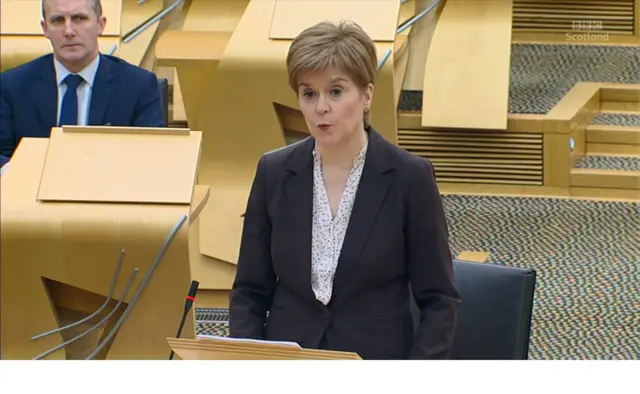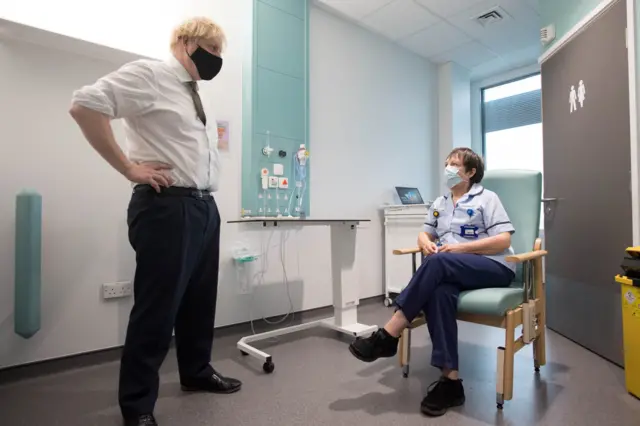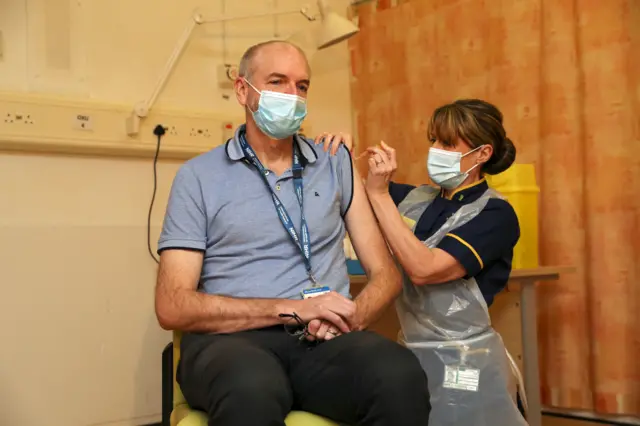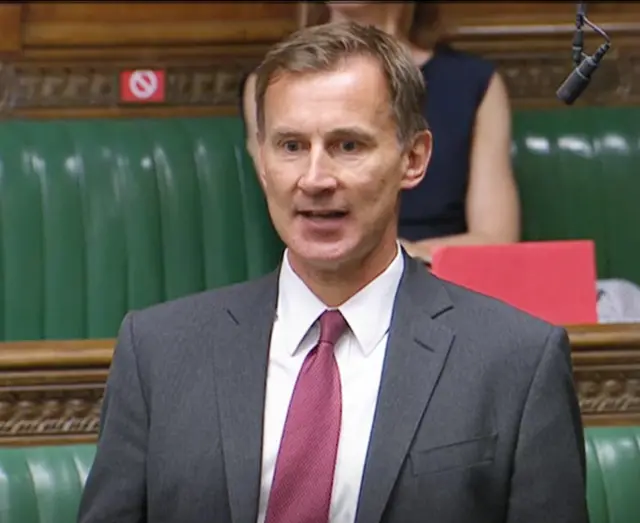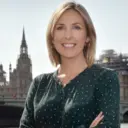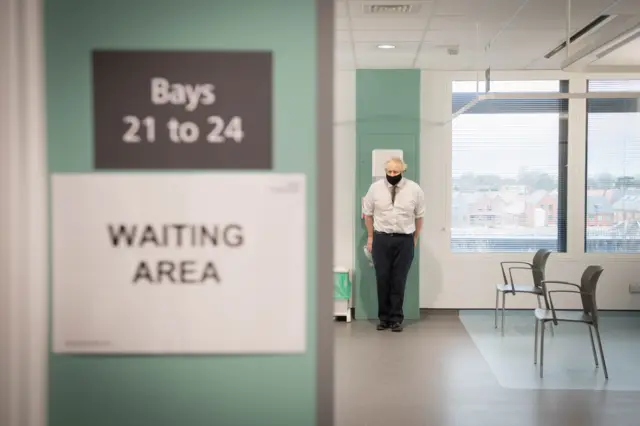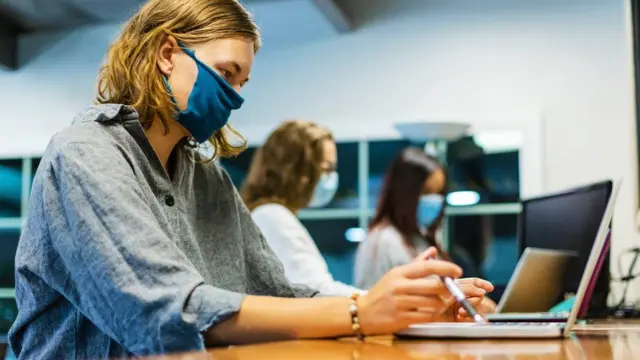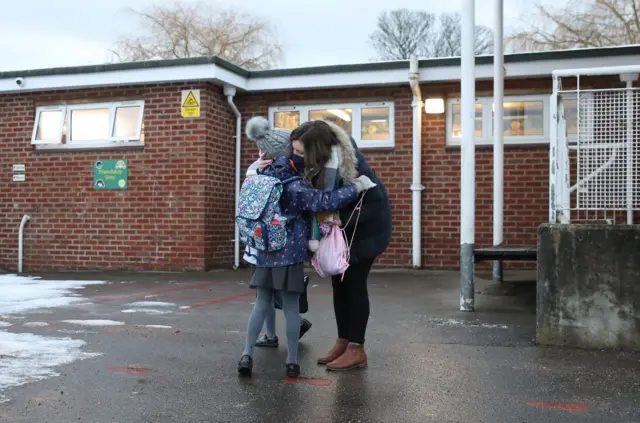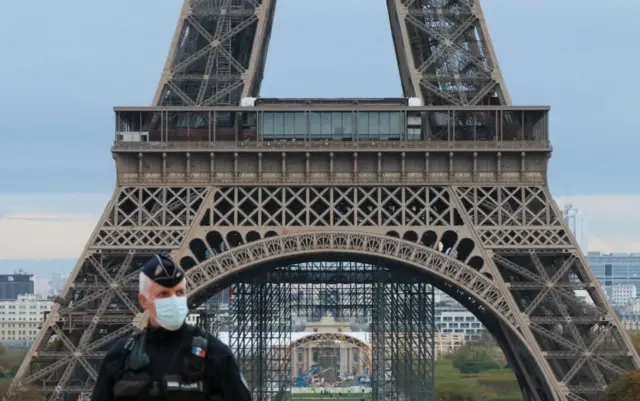'First vaccines for most vulnerable by early May'published at 14:35 GMT 4 January 2021
Nicola Sturgeon says well over 100,000 people have now received their first dose of a Covid-19 vaccine.
The first people in Scotland are receiving the AstraZenica jab today, she says.
In the period to the end of January, the Scottish government expects to have 900,000 doses of the vaccine and "we hope that number will increase" she says.
That number will be split roughly equally between the AstraZenica and the Pfizer vaccines.
More than 2.5 million people, the First Minister said, will receive either the AstraZeneca or Pfizer vaccine by the end of the spring.
The current expectation is by early May everyone aged over 50 and people under 50 with specific underlying health conditions will have received at least one dose of the vaccine, she says.
